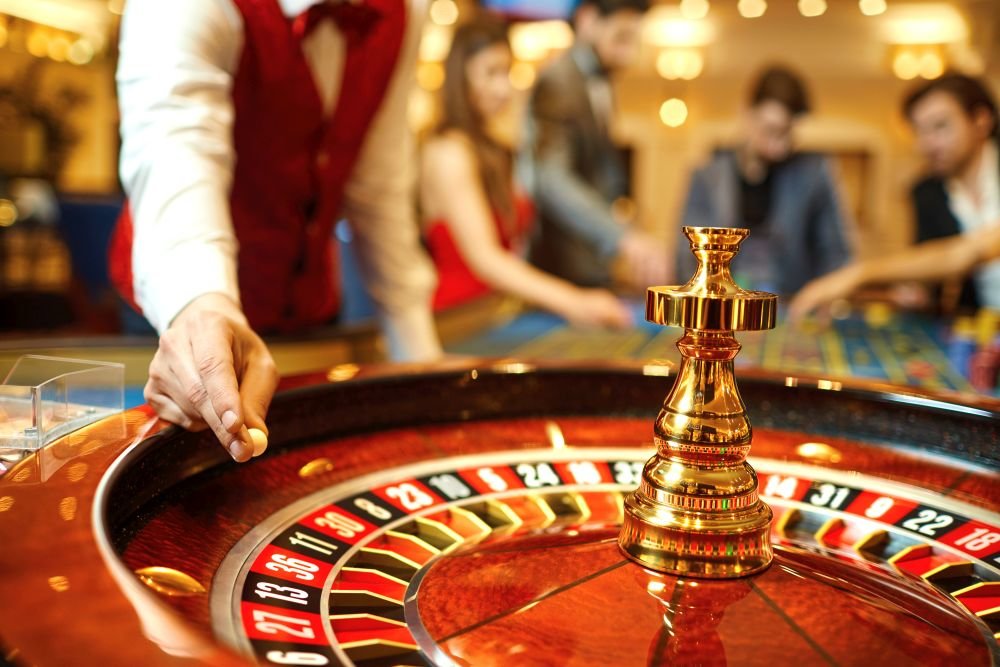The Cultural Impact of Gambling Activities Worldwide

Casino entertainment have long been a captivating source of amusement, drawing countless of players from diverse cultures around the globe. From the glitzy casinos of Las Vegas to the thriving gambling halls of the Cotai Strip, these games serve as a link that connects people across a variety of backgrounds. The allure of luck, strategy, and risk entices not only those seeking to win money but also those seeking a feeling of belonging.
The influence of casino games extends significantly past the gaming floor. They often reflect the values and traditions of the communities in which they prosper. Games such as Texas hold ’em, pontoon, and the spinning wheel have woven themselves into the fabric of mainstream culture, influencing everything from movies to style. As we explore this intriguing intersection of chance and society, we can comprehend better how casino games shape and are affected by the environment surrounding us.
Historical Progression of Casino Activities
The beginnings of gambling games can be tracked back to old cultures, where gambling in multiple forms was widely performed. In China, around 2300 BC, a form of lottery known as Keno was common, while in ancient the Roman Empire, soldiers would often wager on the consequences of their games. The concept of using chance for amusement and profit evolved over the ages, leading to the creation of more formal games. By the end of the Middle Ages, betting houses began to surface in the continent, particularly in Italy, which introduced early versions of popular games still played today.
As betting gained recognition in European regions, the 17th and 18th centuries saw the rise of gambling establishments as dedicated venues for gambling. The earliest official casino, the Ridotto, was set up in the Venetian city in sixteen thirty-eight, featuring games like Baccarat games and Faro. This period marked a crucial shifting point, as gaming venues commenced to draw not just the wealthy but also the burgeoning middle-tier society. The refinement of games increased, leading to the introduction of new regulations and versions that enriched the experience of players.
In the 19th century, the industrial revolution and shifts in social norms additionally transformed the terrain of casino activities. The arrival of roulette and new gaming machines drew a more diverse audience, and gaming houses became seen as legitimate forms of recreation. This period witnessed the international spread of gambling, as gambling houses expanded from the continent to the Western Hemisphere, culminating in the creation of the legendary Las Vegas Boulevard in the 20th century. The progress of gaming games has persisted into the present day, incorporating technology and digital sites, making them accessible to a universal population.
### Cultural Relevance within Diverse Societies
Gambling games have profound cultural significance across many societies throughout the world. In Las Vegas, the very fabric of the urban landscape is woven around gambling establishments, where playing is not just a hobby but a central aspect of leisure and community life. The vivid lights and dynamic atmosphere attract countless individuals, showcasing how casino games can influence local economies and cultural uniqueness. This setting transforms the notion of recreation into an enriching experience that shapes fashion, melodies, and even movies.
On the other hand, some societies treat wagering with greater care, viewing it through the lens of ethical considerations and heritage. For example, in various Asian societies, games like Mahjongg and Pai Gow Gambling are steeped in history and carry significant social implications. These games are often played during gatherings and festivities, fostering community bonds and strengthening family ties. The act of playing these games goes beyond mere amusement, reflecting principles such as deference to seniors and the significance of shared enjoyment.
Simultaneously, in continental countries such as Monaco and Rome, casino games serve as symbols of wealth and elegance. The refined atmosphere of these establishments attracts both visitors and native inhabitants, upholding a sense of distinction and elitism. The art of poker and the strategic elements of games like baccarat are celebrated, influencing social dynamics and creating an appeal that captivates a diverse audience. This underscores how casino games can both reflect and mold cultural attitudes towards hazard, reward, and relationship building.
Financial Influence and Travel Industry
Casino games play a significant role in the economic landscape of many regions, particularly those that rely heavily on tourism. The revenue produced from casino operations fuels local economies, creating employment opportunities not only within the casinos themselves but also in connected industries such as hospitality, restaurant services, and entertainment. This influx of tourists, drawn by the attraction of gambling and the overall casino experience, stimulates spending across multiple local enterprises, contributing to the economic vitality of the region.
The existence of casinos often leads to the construction of infrastructure, including hotels, transportation systems, and leisure amenities. These developments are essential in enhancing the overall tourist experience, making locations more appealing to tourists. Additionally, many casinos contribute in local communities through support of events and philanthropic activities, further embedding themselves into the community structure of the locality. Such investment not only supports economic growth but also fosters a positive reputation of the casino industry.
Moreover, the worldwide appeal of casino games drives tourism competition, with locations vying to attract gamblers from across the globe. Iconic locations like Las Vegas and Macau have become identifiable with casino culture, drawing millions annually. This advantage encourages innovation and diversification within the gambling sector, influencing developments in leisure and accommodation that extend beyond their borders. The ripple effects of this tourism extend far, impacting local financial health and cultural interactions on a global scale.
casino non AAMS
